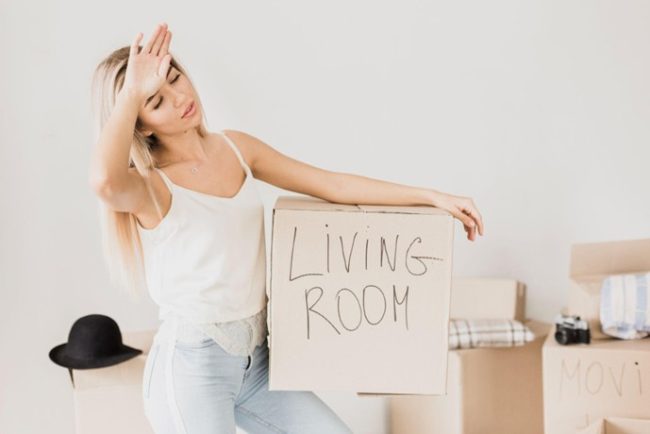In Central New York, we’re no strangers to collecting. Between long winters, rotating wardrobes, sports gear, and sentimental keepsakes, it’s easy for homes to fill up faster than we realize. At first, the clutter feels harmless, a few extra boxes here, an overstuffed closet there, until suddenly it feels like the walls are closing in.
That’s when many people start rethinking what they truly need and where everything belongs. Some even explore options like storage in Clarksville or other flexible storage solutions, not just as a place to put things, but as a way to start fresh. Because decluttering, at its core, isn’t about “getting rid of stuff.” It’s about regaining clarity, purpose, and peace of mind, both inside and out.
The Emotional Weight of “Too Much”
We tend to think of clutter as a physical issue, but most of the time, it’s emotional. Items pile up because of nostalgia, guilt, or fear that we might “need it someday.” Yet the cost of holding on can be subtle, anxiety, distraction, and a constant feeling of unfinished business.
The psychology of clutter
Researchers at Princeton University found that visual clutter actually competes for attention in the brain, reducing focus and increasing stress. When our spaces are chaotic, our thoughts often follow. Conversely, when we create physical order, we often experience mental calm.
In a place like Syracuse, where the changing seasons already shape our routines, simplifying our spaces can feel like exhaling after a long winter. There’s a lightness that comes when everything finally has a place again.
How Decluttering Frees More Than Just Space
Decluttering isn’t about minimalism for its own sake. It’s about intentional living. It helps us prioritize what matters, whether that’s family time, creative work, or simple comfort.
Reclaiming time and energy
Every object you own requires some form of attention, to clean, maintain, move, or store. By reducing excess, you free up not just space but the time spent managing it. That reclaimed energy can go toward hobbies, rest, or relationships.
Creating a sense of flow
A tidy environment supports movement and flexibility. When furniture and possessions are arranged thoughtfully, it becomes easier to navigate your space, rearrange for gatherings, or adapt as your needs change.
Opening space for creativity
Many people notice that after decluttering, their motivation spikes. Whether it’s trying a new recipe, setting up an art table, or hosting neighbors, a clear space encourages action. It’s like giving your mind and home permission to breathe again.
A Local Approach: Seasonal Decluttering in Central New York
Upstate living comes with its own storage challenges. Snow shovels, snow tires, and bulky winter coats compete for room with patio furniture, kayaks, and gardening tools. The key is to declutter seasonally rather than once a year.
Spring: The renewal season
As the snow melts and sunlight returns, start with visible clutter, entryways, mudrooms, garages. These areas collect layers of boots, tools, and winter gear. Clean them out, sort what stays, and donate what you no longer need.
Summer: Streamline the outdoor items
Once you’re outdoors more often, it’s a perfect time to assess backyard equipment, kids’ toys, and lawn supplies. If you haven’t used it in two summers, it’s probably time to pass it on.
Fall: Prepare for the indoor months
Autumn in Syracuse signals more time spent inside. Declutter living rooms and kitchens to make space for family gatherings, cozy evenings, and holiday prep.
Winter: Review digital and emotional clutter
When temperatures drop and you’re home more, tackle your digital files, photos, and sentimental items. It’s the season for reflection, trimming not just possessions but distractions.
Seasonal decluttering also keeps your storage balanced. You’ll always have space for what matters right now, rather than letting every corner fill with “just in case” items.
When Letting Go Is Hard
Image from Freepik
Decluttering can stir up emotion, memories tied to objects, guilt over waste, or the fear of needing something later. That’s natural.
Shift your focus
Rather than thinking, “I’m losing this,” reframe it as, “I’m creating room for something new.” Passing items along allows them to serve someone else instead of collecting dust.
Keep a “maybe box”
If parting with things feels too abrupt, label a small box “revisit later” and store it somewhere out of sight. Check back in six months, chances are, you’ll realize you haven’t missed anything inside.
Small wins build momentum
Start with one shelf, one drawer, or one closet. Each small victory builds motivation for the next step. Decluttering doesn’t need to happen in a weekend; it can unfold gradually and sustainably.
Beyond the Home: Decluttering as Community Care
What’s interesting about simplifying is how it ripples outward. When we free ourselves from excess, we often rediscover generosity and connection.
Giving instead of discarding
Many Central New Yorkers choose to donate household items to local charities or community thrift stores. It’s a sustainable way to keep usable items in circulation and help neighbors in need. A cleared-out closet might warm a family through winter or equip a new household starting out.
Reducing waste, building mindfulness
Fewer possessions often mean fewer purchases. Being mindful about what you bring into your home supports local sustainability efforts and reduces landfill waste. It’s an individual act that contributes to collective impact.
Strengthening community bonds
Decluttering can also inspire community exchange, garage sales, swap events, or “buy nothing” groups. These interactions create social connection in a region where winter can sometimes feel isolating.
The Hidden Benefit: Space for New Stories
Ultimately, decluttering isn’t about perfection or aesthetics, it’s about rewriting your story. Every item you choose to keep represents a conscious decision about what you value and where you’re heading next.
When we let go of the unnecessary, we make room for experiences, creativity, and people. We turn homes into living reflections of our current lives, not museums of our past ones.
So whether you tackle that basement this weekend or finally clear the garage before the next snow, remember that every box you move brings clarity closer. Sometimes, even using an external option like storage in Clarksville isn’t just a space-saving decision, it’s a mindset shift, a practical step toward calm, order, and freedom.
Because from storage to story, the things we release often tell us more about who we’re becoming than the ones we keep.




